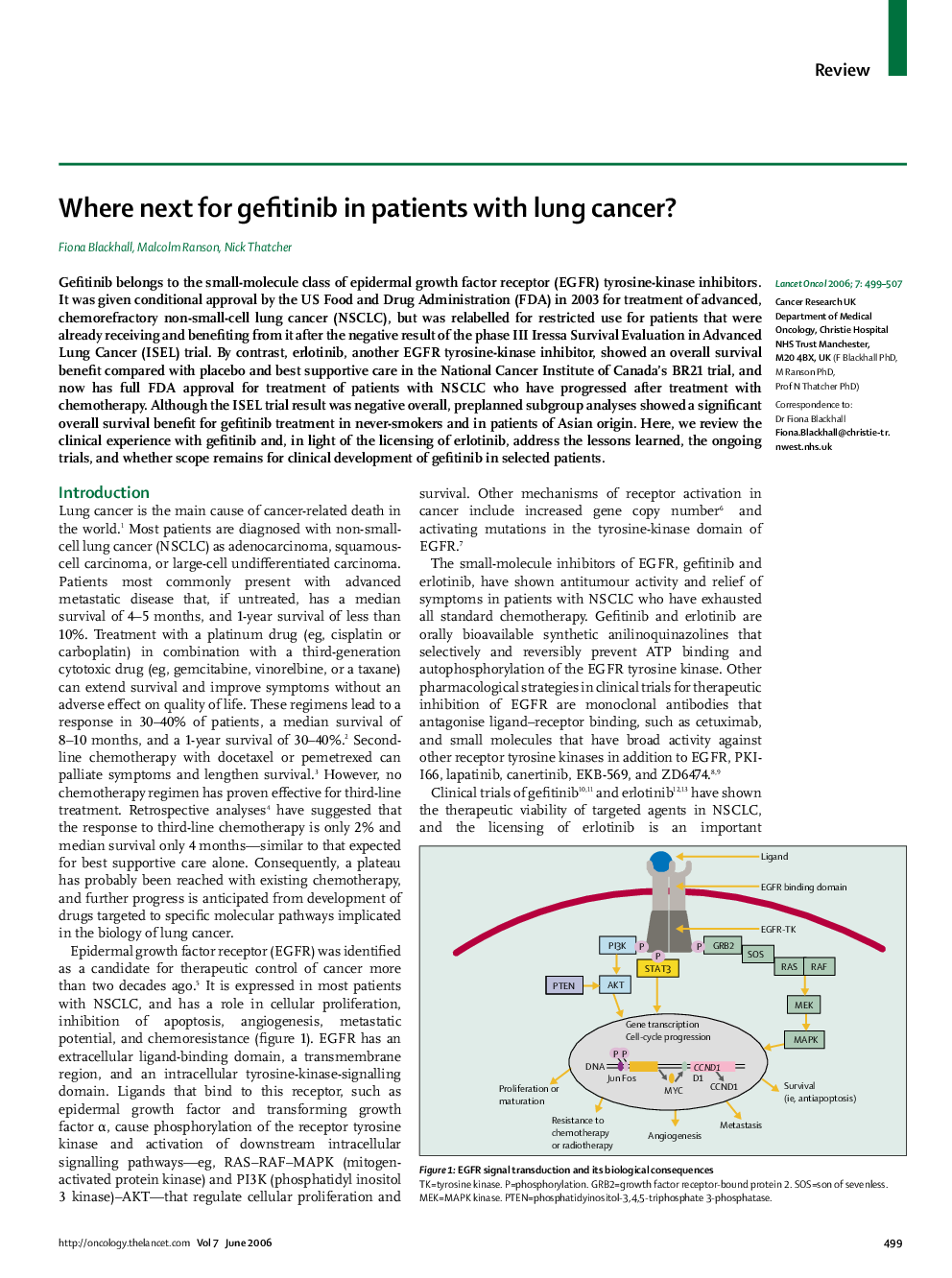| Article ID | Journal | Published Year | Pages | File Type |
|---|---|---|---|---|
| 3995108 | The Lancet Oncology | 2006 | 9 Pages |
SummaryGefitinib belongs to the small-molecule class of epidermal growth factor receptor (EGFR) tyrosine-kinase inhibitors. It was given conditional approval by the US Food and Drug Administration (FDA) in 2003 for treatment of advanced, chemorefractory non-small-cell lung cancer (NSCLC), but was relabelled for restricted use for patients that were already receiving and benefiting from it after the negative result of the phase III Iressa Survival Evaluation in Advanced Lung Cancer (ISEL) trial. By contrast, erlotinib, another EGFR tyrosine-kinase inhibitor, showed an overall survival benefit compared with placebo and best supportive care in the National Cancer Institute of Canada's BR21 trial, and now has full FDA approval for treatment of patients with NSCLC who have progressed after treatment with chemotherapy. Although the ISEL trial result was negative overall, preplanned subgroup analyses showed a significant overall survival benefit for gefitinib treatment in never-smokers and in patients of Asian origin. Here, we review the clinical experience with gefitinib and, in light of the licensing of erlotinib, address the lessons learned, the ongoing trials, and whether scope remains for clinical development of gefitinib in selected patients.
